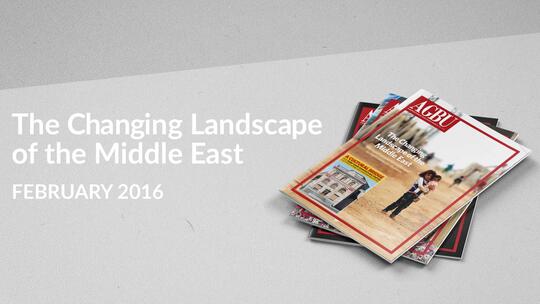As the oldest Armenian diasporan community in the world, Syrian Armenians have prospered in the Middle East for centuries, proudly contributing to its diversity. Amidst the relentless war in Syria, many in the diaspora’s “mother community” are now faced with a heartbreaking decision to either remain and risk their children’s safety or abandon their homes, leaving family members and friends behind to seek refuge in neighboring Lebanon, Europe, North America and their ancestral homeland in Armenia where a repatriation program and immigration policies have made it relatively easy to settle.
In 2012, as the conflict escalated in Aleppo, the industrial hub of pre-war Syria and home to the largest Armenian community in the country, Armenia’s government adopted a series of “special measures” to help Syrian Armenians. It authorized consular offices in Syria, Iraq and Lebanon to issue citizenship and passports to Syrian Armenians free of charge and accelerated their travel procedures. Syrians in Armenia are able to use their Syrian drivers’ licenses, obtain free medical care and pay local tuition at universities.
To date, more than 16,000 Syrian Armenians have arrived in Armenia according to the United Nations High Commissioner for Refugees (UNHCR). While as many as 5,000 have since returned to Syria or moved to other countries, the estimated 12,000 who remain continue to benefit from dozens of programs and initiatives designed to help them find affordable housing, social services, free schooling and secure employment.
From the onset, AGBU Yerevan played a leading role in the effort, opening its doors to all Syrian Armenian families and conducting one-on-one consultations to assess their needs. Under the direction of AGBU Central Board member Vasken Yacoubian, AGBU Yerevan staff and volunteers implemented a six-month assistance program that included rent subsidies, job placement and school registration. “In the beginning, it was challenging for many to adapt as the majority of Syrian Armenians believed they would be here for two or three weeks only,” recalled Yacoubian. “As the violence in Syria escalated, however, their mindset changed and they began the gradual process of integrating into local society.”
To help the new arrivals transition and settle in Armenia, the Ministry of Diaspora, in partnership with AGBU Yerevan (as a main partner) and other non-governmental organizations, established the Center for Coordination of Syrian Armenians’ Issues NGO. Over the past four years, AGBU has coordinated dozens of programs and initiatives including providing financial assistance and medical aid to families in need, and in partnership with the Calouste Gulbenkian Foundation, tuition to Syrian Armenian students studying at Armenian universities. Each year, the number of students receiving scholarships has risen: from 345 students in 2013-2014 to 420 students in 2014-2015 and 500 students in 2015-2016. Outside of Yerevan, AGBU distributed tractors and agricultural supplies to a few dozen families who have settled in the rural regions of Nagorno-Karabakh in collaboration with the Cherchian Family Foundation.
Dozens of other aid organizations, including UNHCR, have undertaken initiatives to help new arrivals earn a living by providing the equipment necessary in their fields of expertise and other forms of assistance ranging from loans and legal advice to tutoring. As a result, many Syrian Armenians have opened successful businesses and restaurants throughout Yerevan, including in the Aleppo Market, situated in a pedestrian underpass near Republic Square. The influx of Syrians is not only contributing to Armenia’s economic development and diversity, but also helping stem high emigration among the country’s small population of three million.
Many newly arrived Syrian Armenians, however, have struggled to find accommodation and jobs amid limited employment opportunities and a lack of affordable housing, which continues to be the foremost obstacle to their successful integration. According to Yacoubian, stipends for rent or temporary housing—while beneficial—are only a short-term measure. “We needed a more effective, overarching long-term strategy to allocate resources toward securing jobs and permanent housing.”
Ministry of Diaspora officials have acknowledged the challenges of accommodating so many refugees, but insist even as an imperfect sanctuary, Armenia, with its common culture, is best suited to help Syrian Armenians rebuild their lives and prosper once again.






